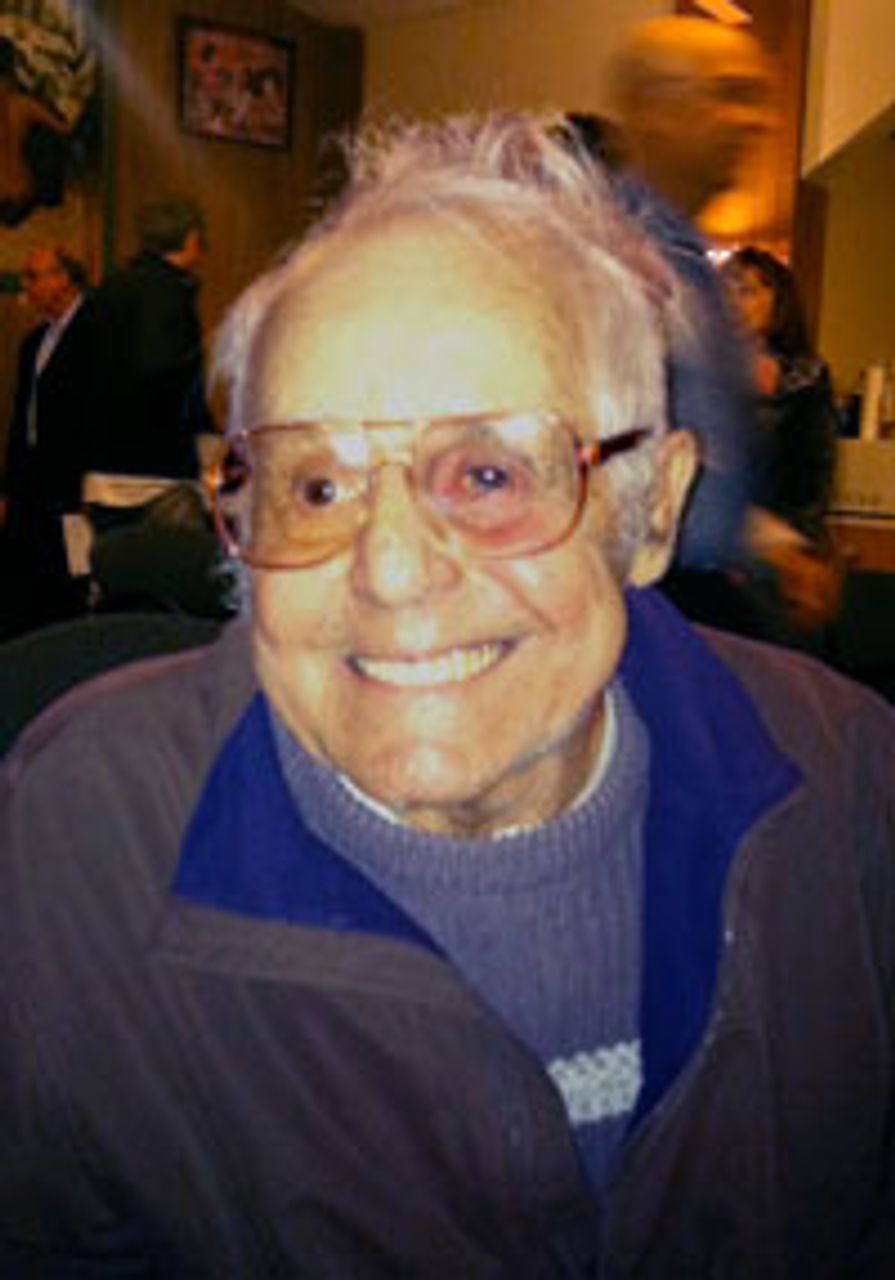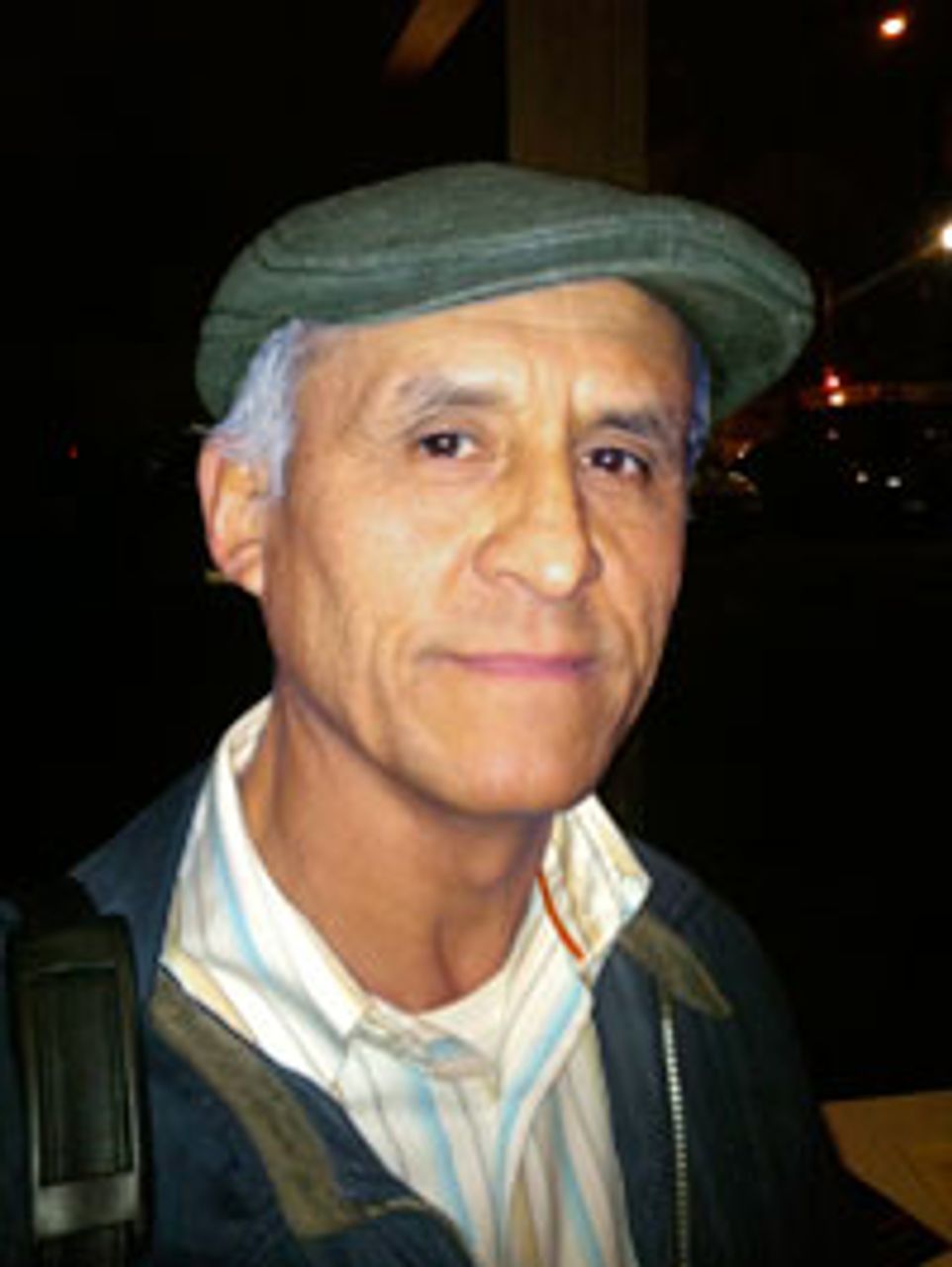On Thursday evening, Socialist Equality Party presidential candidate Jerry White addressed an election meeting in Maywood, California, a predominantly Hispanic city in the Los Angeles metropolitan area.
Maywood, once an industrial and manufacturing center, is a scene of boarded-up workplaces, runaway government corruption, and overall economic devastation. In July of 2010, the city laid off virtually all of its city employees, including its entire police department, citing budget shortfalls. The city administration now outsources basic municipal services.
Most of Maywood’s inhabitants are immigrants from Mexico, Nicaragua, El Salvador and Honduras.
In the weeks leading up to the meeting, the SEP’s demand for full rights for immigrants received broad support in the nearby neighborhoods in which the party campaigned. Around 30 workers and young people attended Thursday’s meeting, and most stayed for discussions that continued well after the meeting’s conclusion.
White began his remarks by reviewing the support in the working class that the SEP’s campaign has received throughout the country and internationally since it was launched in February. He denounced the fraudulent choice in 2012 between Mitt Romney and Barack Obama. “In the final analysis,” he said, “two parties controlled by the most powerful financial interests exercise a monopoly over political life in this country.”
White pointed to the incredible levels of social inequality that prevail throughout the world and in the US, citing a recent report on “ultra high net worth individuals.” Around 186,000 such individuals (who each have net worth totaling more than $30 million) possess assets worth $26 trillion dollars, White said, or around half of the global annual GDP. In the US, 58,000 such individuals are worth $7.6 trillion, or roughly half of the country’s annual GDP.
Having reviewed these figures, White rejected emphatically the claim put forward by the representatives of both bourgeois parties that “there is no money” to provide for the basic needs of the population, including health care, education and decent jobs.
White took on directly the issue of identity politics, and in particular the Hispanic nationalism that is prevalent in Los Angeles. The election of bourgeois Hispanic politicians, he explained, has not provided any solution to the basic problems confronting the working class, including poverty, budget cuts, unemployment and attacks on immigrants. “The fundamental social question is not race or nationality but class,” he said. White stressed the common interests of the working class across all nationalities and ethnicities, and emphasized the internationalist program and heritage of the SEP.
White concluded his remarks by pointing to the massive protests last year in Tunisia, Egypt, Israel and Greece, as well as in Wisconsin and the Occupy Wall Street movement. He explained that these movements are the initial expression of great social opposition. White distinguished the SEP from all those groups—including those that call themselves “socialist”—which seek to divert this opposition in one way or another back into the framework of bourgeois politics and the capitalist two-party system.
After White opened the floor for questions and comments, one member of the audience took issue with White’s criticism of nationalism and identity politics. “Nationalism can be progressive,” he said, calling for “national self-determination” for minorities and denouncing White’s remarks as an expression of “white chauvinism.”
White welcomed a discussion on identity politics, pointing by way of example to those who supported Obama on the grounds that he is black. Ultimately, it was the social class Obama represents, not his skin color, that determined Obama’s politics, White explained. Under the Obama administration, conditions for the working class as a whole—black, white, and Hispanic—have gotten worse.
White denounced wealthy political figures such as Al Sharpton and Jesse Jackson, who defend capitalism and support Obama and the Democratic Party while insisting that the fundamental issue is race.
Unconvinced, the same audience member asked, “Do you think that nationalism is always reactionary?” “Yes,” White responded. White made clear the origins and record of nationalism in the 20th century, and he contrasted them with the SEP’s history and program. White devoted special attention to the dead-end of the nationalism employed by the trade unions as well as the failure of the Stalinist conception of “socialism in one country.” Under conditions of global capitalism, nationalism, White explained, operates to sever international class ties among workers and pit workers with common interests against one another other.
Luis, an SEP member, stood up to defend the socialist and internationalist perspective put forward by White. He pointed to the bankruptcy of the various local political tendencies basing themselves on ethnic identity—all of which supported Obama in 2008, and none of which present any challenge to capitalism and the status quo. These organizations exist to provide a narrow layer of upper-middle class individuals “a piece of the action,” he said. Luis’ contribution was greeted with applause from those in attendance.
In the course of discussion, White stressed the importance of history. “Socialism is not an abstract moral ideal, a utopia,” he said. “It is a science, incorporating the experiences of the working class over the past 150 years.” White reviewed the Bolshevik revolution of 1917, which he called “the greatest event in human history,” and the political issues in the struggle waged by Trotsky against the Stalinist bureaucracy. He encouraged those in attendance to read Trotsky’s The Revolution Betrayed (1936) as well as David North’s In Defense of Leon Trotsky (2010).
In response to another question about the nature of wealth, White, using a whiteboard, provided a detailed explanation of Marx’s theory of surplus value, which the audience followed with interest. “We, the working class, produce all the wealth in society,” he said, calling for that wealth to be “clawed back” and directed towards “human need, not private profit.”
White insisted that none of the problems confronting mankind—from climate change and global warming to war, poverty, and unemployment—could be addressed while the world remains divided into hostile nation states and every major social decision remains subordinate to the interests of private profit.
After the meeting, many workers and youth stayed to discuss the issues that arose in the meeting, and several expressed interest in becoming involved in the SEP campaign.
 John
JohnJohn, a 76-year-old retired tennis instructor, attended the meeting. He recounted afterwards how he and his immigrant parents had supported the New Deal and President Franklin D. Roosevelt. He described the effect that Roosevelt’s fireside chats had on his mother, who would listen to them every week. “He would advise listeners on government relief not to spend more than one fourth of their check on rent. At the time my mother would receive $120 a month. Our rent was one third of that, $40.
“Personally, I would not be at this meeting if I thought our system was fair; my loyalty is to the working class, and the working class does not have ten years to wait for things to improve. I thought that Jerry White’s ideology was outstanding. His socialism is one of peace and equality.” Resisting the points made by SEP supporters, John added, “I am still thinking that the Democrats are preferable to the Republicans. When Eugene Debs ran as a socialist for president, he would have won but the capitalist propaganda machine was against him. The propaganda machine is an obstacle to socialism and will always oppose Jerry White and the SEP. This country will not go gently into socialism.”
“I thought the meeting was excellent,” said Gervasio, another worker who attended the meeting. “It should be brought to a wider audience. The working class needs to hear this. They need to be brought away from the media, the propaganda is used to control them.”
 Gervasio
GervasioGervasio gave an account of the social crisis in Maywood, which is near to where he lives. “Public sector workers are being fired. People are without health care, students are dropping out of school, and old people are being pushed into unemployment. That is the reality.”
On the subject of Obama’s immigration policy, Gervasio said, “When Obama was campaigning he was championing immigrant rights, but when he became president he did the opposite. I’ve been aware of the international [workers’] movement since I was 18. I read Marx and Lenin, but not much of Trotsky until now. I realized that internationalism was the answer to the crisis of capitalism. There is no other way. There is no other force that is going to liberate the working class.”
